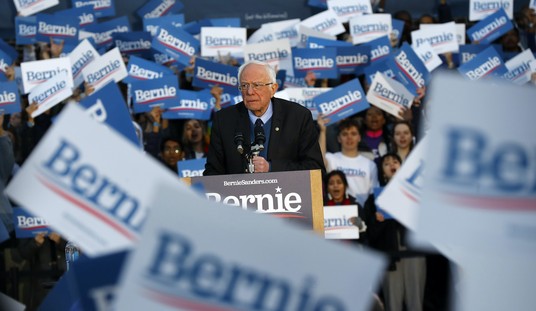Like clockwork, members of Charles Manson’s cult “family” serving time for the group’s various murders come up for parole, thanks to the effects of the Supreme Court striking down the death penalty in the early 1970s. And like clockwork until recently, the victims’ families joined with prosecutors at each hearing to oppose release.
Kay Martley expected to have a prosecutor help represent her at a January hearing about Bruce Davis. Instead, the cousin of torture-murder victim Gary Hinman was stunned to learn that Los Angeles District Attorney George Gascón supported parole instead — part of his empty-the-prisons program:
But when Kay Martley joined a California Board of Parole Hearings video conference to consider parole for convicted Manson “family” killer Bruce Davis earlier this month, she was stunned to learn she would be making the case on behalf of her murdered relative alone.
“I had no one to speak for me,” said Martley, 81, whose cousin Gary Hinman was tortured and killed by Manson followers on July 27, 1969. “I felt like no one cares about the victim’s families anymore. We are totally forgotten.”
The absence of a prosecutor was no oversight. It was the result of a policy shift ordered by newly elected Los Angeles County District Attorney George Gascón, who campaigned on promises to reduce the number of people in prison.
The new mandate puts a halt on Los Angeles County prosecutors opposing parole for inmates sentenced to life who have already served their mandatory minimum period of incarceration.
Most people might wonder why victims’ families have to endure these hearings at all. When the Supreme Court ruled the death penalty unconstitutional in 1972 in Furman v Georgia, it automatically commuted all sentences to the next most rigorous penalty. California had not yet enacted a sentence of life without parole at the time the murders occurred, which meant the death sentences all became life sentences with parole eligibility, beginning in seven years. When the Supreme Court re-enabled the death penalty in 1976, it did not allow for the penalty to be restored in previous cases, but only reapplied going forward with new restrictions and processes.
So every couple of years since then, the state of California has had to go through these motions to keep deranged multiple murders behind bars — at least those sentenced prior to 1976. Gascón, however, has a new blanket policy of supporting parole on first eligibility in all cases. That includes parole for serial rapists, and opposing sentencing enhancements in murder cases that would keep prisoners in prison longer before even getting to parole eligibility.
This is all part of Gascón’s social-justice agenda, and he’s hardly alone. Thanks to aggressive organizing by progressives in several states and counties, district attorneys around the country are imposing these kinds of policies despite strong popular support for violent-crime sentencing. Unfortunately, voters didn’t connect those dots in these elections, and victims’ families are stuck with the consequences.
The Manson family murderers offer the reductio ad absurdum to Gascón’s blanket policies. Even progressive governors like Jerry Brown and Gavin Newsom knew better than to allow the Manson murderers out of prison. With violent crime skyrocketing in these jurisdictions, it won’t take more than a few recidivist murders to create a furious backlash to Gascón’s policy, but paroling the Manson family might accelerate the process significantly — especially with family members going public with Gascón’s betrayal of the victims in favor of the perps.








Join the conversation as a VIP Member